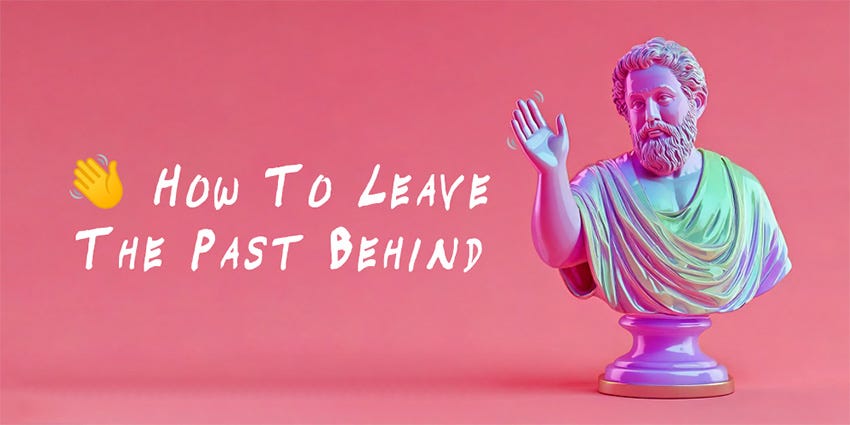The past no longer exists.
At first glance, this might seem like an obvious statement—completely unremarkable.
Yet, how often do we find ourselves revisiting past events, wishing we could alter them or erase them entirely?
However, what lingers to trouble us isn’t even the events themselves. It’s our judgment of them—the ongoing story we tell ourselves about them.
Even if it doesn’t always feel like it, changing our perspective on this story, or letting it go completely, is within our control. After all, who else’s control could it be within?
When we repeatedly dwell on negative narratives, we add an extra layer of suffering to whatever hardship we originally faced. Instead of gaining distance from these stories, we become disconnected from reality itself.
To see these stories for what they truly are, the Stoic advice is to take a step back.
One way to do this is by applying the same objectivity—or even skepticism—we would if a friend were telling us a similar story.
Your advice to that friend might be: “What’s done is done. The only thing you can do now is focus on the present and move forward.” There’s nothing stopping us from advising ourselves in the same manner.
We can make it a habit to reshape the narrative that past events leave behind.
Shift your attention toward the lessons those experiences offer and the wisdom you can apply right now.
With practice, this mindset becomes second nature. The caveat again: with practice.
As you regain control of your perspective, the past loses its hold over you. Your story becomes your own again.
Returning to the opening statement: the past no longer exists.
It’s funny, too, that we keep searching for past events, yet we don’t search for the past itself. We don’t try to find the actual time when those events occurred.
For example, we don’t ask where last month went. We simply accept that it’s gone, and all we can do is live in the present month.
Maybe this small contrast—between how we think about events versus how we think about time—can help us move on from what has already happened.
For more practical Stoic guidance like this, you can upgrade to a Micro Morning Meditations membership.
Every weekday, you’ll receive a uniquely crafted email covering a specific Stoic topic for the day ahead. These short morning routines are designed to naturally and manageably build your Stoic abilities over time.
You’ll also have full access to 600+ past editions.
In his 1972 novel Invisible Cities, Italian writer Italo Calvino explores imagination through the observations of the explorer Marco Polo.
Polo’s brief prose descriptions of 55 fictional cities serve as reflections on culture, language, memory, time, desire, and the human experience.
This is a book best enjoyed slowly—one chapter at a time—knowing that a re-reading might reveal new meanings you hadn’t noticed before.
Between city descriptions, Calvino offers an insight into Polo’s mind that is worth considering as we reflect on the past:
Marco enters a city; he sees someone in a square living a life or an instant that could be his; he could now be in that man’s place, if he had stopped in time, long ago; or if, long ago, at a crossroads, instead of taking one road he had taken the opposite one, and after long wandering he had come to be in the place of that man in that square. By now, from that real or hypothetical past of his, he is excluded; he cannot stop; he must go on to another city, where another of his pasts awaits him, or something perhaps that had been a possible future of his and is now someone else’s present. Futures not achieved are only branches of the past: dead branches.
The lesson here is clear: different choices in the past could have led to different outcomes in the present, but the chance to take those particular paths has passed.
This doesn’t mean we are powerless. We can still make thoughtful choices and carve new paths in the present.
As the Stoic philosopher Seneca believed, the sooner we recognize this, the better:
Even as conversation or reading or deep thought on some subject beguiles travelers, and they find that they have reached the end of their journey before realizing that they were approaching it, just so with this unceasing and most swift journey of life, which we make at the same pace whether waking or sleeping; those who are preoccupied become aware of it only at the end.
— On the Shortness of Life 9.5
It’s never too late to become who you want to be. To carve new paths in the present, regardless of what has gone before.
Like Polo, you can leave the dead branches of the past behind and continue exploring on this swift journey of life.









"Futures not achieved are only branches of the past: dead branches"
Powerful statement.